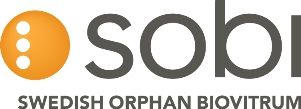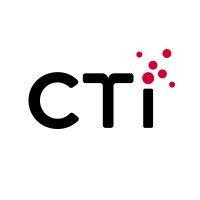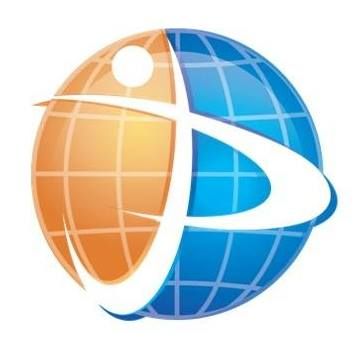预约演示
更新于:2025-05-07
Adult Acute Myeloblastic Leukemia
成人急性髓性白血病
更新于:2025-05-07
基本信息
别名 AML, adult、ANLL, adult、Adult AGL + [46] |
简介 An acute myeloid leukemia occurring in adults. |
关联
141
项与 成人急性髓性白血病 相关的药物作用机制 ALK2抑制剂 [+4] |
最高研发阶段批准上市 |
首次获批国家/地区 美国 |
首次获批日期2022-02-28 |
作用机制 ACADS inhibitors [+1] |
非在研适应症 |
最高研发阶段批准上市 |
首次获批国家/地区 美国 |
首次获批日期2019-07-03 |
靶点 |
作用机制 SMO拮抗剂 |
在研机构 |
原研机构 |
最高研发阶段批准上市 |
首次获批国家/地区 美国 |
首次获批日期2018-11-21 |
307
项与 成人急性髓性白血病 相关的临床试验NCT06667973
A Phase 2, Open-label, Multicentre Study Investigating Tolerability and Efficacy of Gilteritinib in Combination With Fludarabine, Cytarabine and Idarubicin (FLAI) as Induction Therapy of Newly Diagnosed Non-M3 FLT3-positive Acute Myeloid Leukemia
The goal of this clinical trial is to evaluate the efficacy of gilteritinib as induction therapy in FLT3-positive adult acute myeloid leukemia patients. The main question it aims to answer is:
Is gilteritinib in combination to chemotherapy able to improve the complete remission rate of FLT3-positive AML?
Participants will receive up to 2 induction cycles with gilteritinib in combination with FLAI (fludarabine, cytarabine, idarubicine) and up to 3 consolidation cycles with gilteritinib and high-dose cytarabine.
Is gilteritinib in combination to chemotherapy able to improve the complete remission rate of FLT3-positive AML?
Participants will receive up to 2 induction cycles with gilteritinib in combination with FLAI (fludarabine, cytarabine, idarubicine) and up to 3 consolidation cycles with gilteritinib and high-dose cytarabine.
开始日期2025-06-01 |
NCT06900088
Efficacy and Safety of Selinexor Combined With Azacitidine as Maintenance Therapy in High-Risk Myeloid Neoplasms Patients Post-Transplantation: A Single-Center, Single-Arm, Explorato
Efficacy and Safety of Selinexor Combined with Azacitidine as Maintenance Therapy in High-Risk Myeloid Neoplasms Patients Post-Transplantation: A Single-Center, Single-Arm, Exploratory Study
开始日期2025-04-25 |
申办/合作机构- |
NCT06613217
A Phase 1 Study of Oral PCLX-001 in Relapsed/Refractory (R/R) Acute Myeloid Leukemia (AML)
This is a dose-finding study of oral zelenirstat (PCLX-001) in patients with R/R AML. There are two parts to the study: Dose Escalation and Dose Expansion.
开始日期2025-03-03 |
申办/合作机构 |
100 项与 成人急性髓性白血病 相关的临床结果
登录后查看更多信息
100 项与 成人急性髓性白血病 相关的转化医学
登录后查看更多信息
0 项与 成人急性髓性白血病 相关的专利(医药)
登录后查看更多信息
1,146
项与 成人急性髓性白血病 相关的文献(医药)2025-12-01·Functional & Integrative Genomics
Application of a high-throughput swarm-based deep neural network Algorithm reveals SPAG5 downregulation as a potential therapeutic target in adult AML
Article
作者: Grundy, Robert I ; Ball, Graham R ; Zafeiris, Dimitrios ; Ajonu, Chinyere I
2025-04-01·Leukemia
Comparison of subcutaneous injection versus intravenous infusion of cytarabine for induction therapy in adult acute myeloid leukemia
Article
作者: Shen, Jianping ; Tong, Hongyan ; Ren, Hanyun ; Liu, Lu ; Suo, Shanshan ; Li, Yan ; Jin, Jie ; Chen, Ying ; Meng, Haitao ; Ji, Chunyan ; Chen, Tong ; Li, Jianyong ; Wang, Huafeng ; Wang, Jinghan ; Kang, Sijing ; Zang, Shaolei ; Yu, Kang ; Li, Dengju ; Liang, Bin ; Yu, Wenjuan ; Cheng, Wei ; Lu, Ying
2025-04-01·Melanoma Research
Pembrolizumab-induced acquired lipodystrophy: a case report and review of the literature
Review
作者: Marsiglio, John ; Hu-Lieskovan, Siwen ; McPherson, Jordan ; Wahl, Matthew
60
项与 成人急性髓性白血病 相关的新闻(医药)2024-06-07
June 06, 2024 -- HUTCHMED (China) Limited (“HUTCHMED”) (Nasdaq/AIM:HCM; HKEX:13) today announces that it has initiated Phase I clinical trial of its menin inhibitor HMPL-506 in patients with hematological malignancies in China. The first patient received their first dose on May 31, 2024.
This is a Phase I, multicenter, open-label clinical study to evaluate the safety, pharmacokinetics and efficacy of HMPL-506 in patients with hematological malignancies. The study is divided into two phases, a dose escalation phase and a dose expansion phase. The study is expected to enroll at least 60 patients. The lead principal investigators are Dr. Jianxiang Wang and Dr. Hui Wei of Chinese Academy of Medical Sciences Blood Diseases Hospital. Additional details may be found at clinicaltrials.gov, using identifier NCT06387082.
HMPL-506 is a novel, investigational, selective small molecule inhibitor for oral administration targeting the menin protein. The menin protein is a scaffold protein that controls gene expression and cell signaling. Mixed-lineage leukemia (“MLL”, also known as KMT2A) rearrangement and nucleophosmin 1 (“NPM1”) mutation play key roles in acute myeloid leukemia (“AML”). MLL-rearranged AML accounts for approximately 5% of adult AML and NPM1-mutant AML accounts for approximately 30% of AML.1,2,3 Current research has demonstrated that the inhibition of menin-MLL interaction is a feasible therapeutic strategy in MLL-rearranged and/or NPM1-mutant AML.4,5,6,7 Currently there is no menin inhibitor approved worldwide. HUTCHMED currently retains all rights to HMPL-506 worldwide.
According to the National Cancer Institute (NCІ), there will be approximately 20,380 new cases of AML in the U.S. in 2023 and the five-year relative survival rate is 31.7%.8 There were an estimated 19,700 new cases of AML in China in 2018 and is estimated to reach 24,200 in China in 2030.9
HUTCHMED (Nasdaq/AIM:HCM; HKEX:13) is an innovative, commercial-stage, biopharmaceutical company. It is committed to the discovery and global development and commercialization of targeted therapies and immunotherapies for the treatment of cancer and immunological diseases. It has approximately 5,000 personnel across all its companies, at the center of which is a team of about 1,800 in oncology/immunology. Since inception it has focused on bringing cancer drug candidates from in-house discovery to patients around the world, with its first three oncology drugs marketed in China, the first of which is also marketed in the U.S. For more information, please visit: www.hutch-med.com or follow us on LinkedIn.
1Ibrahim S, Estey EH, Pierce S, et al. 11q23 abnormalities in patients with acute myelogenous leukemia and myelodysplastic syndrome as detected by molecular and cytogenetic analyses. Am J Clin Pathol, 2000, 114(5):793-7.
2Grimwade D, Hills RK, Moorman AV, et al. Refinement of cytogenetic classification in acute myeloid leukemia: determination of prognostic significance of rare recurring chromosomal abnormalities among 5876 younger adult patients treated in the United Kingdom Medical Research Council trials. Blood, 2010,116(3):354-65.
3Falini B, Mecucci C, Tiacci E, et al. Cytoplasmic nucleophosmin in acute myelogenous leukemia with a normal karyotype. N Engl J Med. 2005;352(3):254-66.
4Krivtsov AV, Evans K, Gadrey JY, et al. A Menin-MLL Inhibitor Induces Specific Chromatin Changes and Eradicates Disease in Models of MLL-Rearranged Leukemia. Cancer Cell 2019;36:660–73 e11.
5Uckelmann HJ, Kim SM, Wong EM, et al. Therapeutic targeting of preleukemia cells in a mouse model of NPM1 mutant acute myeloid leukemia. Science 2020;367:586–90.
6Borkin D, He S, Miao H, et al. Pharmacologic inhibition of the Menin-MLL interaction blocks progression of MLL leukemia in vivo. Cancer Cell 2015;27:589–602.
7Klossowski S, Miao H, Kempinska K, et al. Menin inhibitor MI-3454 induces remission in MLL1-rearranged and NPM1-mutated models of leukemia. J Clin Invest 2020;130:981–97.
8National Cancer Institute – seer.cancer.gov/statfacts/html/amyl.html.
9Lin J, Yao D, Qian J, et al. ІDH1 and ІDH2 mutation analysis in Chinese patients with acute myeloid leukemia and myelodysplastic syndrome. Ann Hematol. 2012;91(4):519-525. doi:10.1007/s00277-011-1352-7.
The content above comes from the network. if any infringement, please contact us to modify.
临床1期免疫疗法
2023-11-13
·药明康德
Vor Bio日前公布其在研干细胞疗法tremtelectogene empogeditemcel(trem-cel)治疗急性髓系白血病(AML)患者首次人体研究的最新临床数据。迄今为止,接受治疗的所有7例患者均显示trem-cel的中性粒细胞植入。
Trem-cel细胞通过基因编辑敲除编码CD33的基因。分析显示,接受trem-cel治疗的7例患者发生中性粒细胞植入的中位时间为10天,这进一步证明CD33在生物学上是可有可无的。此外,患者血小板恢复的中位时间为15.5天,不包括1例既往记录有抗血小板抗体(免疫性血小板减少症)的患者。
所有三名接受CD33靶向抗体偶联药物(ADC)Mylotarg治疗的患者都通过重复剂量获得了血液学保护,免受深度血细胞减少症的影响,这表明trem-cel移植可以保护患者的健康细胞免受Mylotarg治疗中常见的靶向毒性(骨髓抑制)。所显示的血液学保护特性为Mylotarg的剂量递增提供了支持。
在AML患者体内,肿瘤细胞表面会大量表达CD33蛋白。而靶向CD33的靶向疗法可能因为与健康细胞表面表达的CD33结合,“误伤”健康细胞而产生毒副作用。过去一些大规模的基因组研究表明,不少血细胞在不表达CD33时也可以健康存活。Trem-cel基于Vor专有平台开发。这一平台利用CRISPR/Cas9基因编辑技术,在体外对造血干细胞进行改造,敲除编码CD33的基因。回输到患者体内的造血干细胞将产生不表达CD33蛋白的健康新细胞。健康细胞就好像穿上了“隐身衣”,不会被药物误伤。靶向疗法也可以就此放开手脚,专心对付肿瘤细胞,在提高特异性的同时,降低其潜在的副作用。VOR33旨在替代复发风险高的AML患者的标准移植治疗。
参考资料:[1] Vor Bio Presents Positive Data Update on Trem-cel at HSCT² Conference. Retrieved November 11, 2023 from https://ir.vorbio.com/news-releases/news-release-details/vor-bio-presents-positive-data-update-trem-cel-hsct2-conference
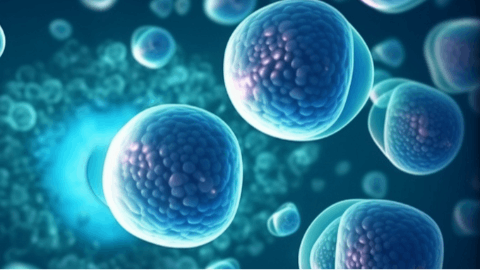
细胞疗法基因疗法抗体药物偶联物临床结果
2023-11-01
·医药观澜
10月31日,劲方医药宣布高选择性CDK9抑制剂SLS009(GFH009)获得美国FDA授予快速通道资格,治疗复发/难治性成人外周T细胞淋巴瘤(PTCL)患者。此项认定基于GFH009中美多中心1期试验达到的关键研究目标。此前,该产品已获得FDA授予治疗急性髓系白血病(AML)的孤儿药资格。2022年,劲方医药与SELLAS生命科学集团就GFH009开发达成战略授权合作。
PTCL是一种异质性强、侵袭性高的非霍奇金淋巴瘤(NHL)。中国PTCL常见亚型为NK/T细胞淋巴瘤(NKTCL)、PTCL非特指型(PTCL-NOS)、血管免疫母细胞性T细胞淋巴瘤(AITL)和间变性大细胞淋巴瘤(ALCL)。PTCL常见的一线治疗以CHOP方案或CHOP方案联合依托泊苷进行诱导治疗,有效之后再联合自体造血干细胞移植。其中,间变性淋巴瘤激酶(ALK)阳性ALCL患者应用CHOP类方案预后良好;但复发/难治性PTCL患者总体预后较差,中位生存时间不足6个月。近十年来,PTCL基础研究和靶向药开发持续取得进展,多种创新药为复发难治性PTCL患者提供了新选择。
GFH009是一款强效、高选择性小分子细胞周期依赖蛋白激酶(CDK)抑制剂。临床前实验数据显示,通过特异性抑制CDK9蛋白,GFH009可降低下游原癌基因表达、抑制癌细胞的快速分裂和蛋白合成;并在原癌基因高度转录依赖性的肿瘤细胞中,抑制细胞关键信号通路、诱发细胞衰老和癌细胞死亡,且对其他CDK亚型的选择性超过100倍。体外、体内药效实验还表明,GFH009可显著抑制多种血液肿瘤细胞系的增殖,降低荷瘤动物死亡率、显著延长模型动物的存活时间。
GFH009单药治疗复发/难治性血液肿瘤患者的中美1期多中心试验已于今年完成剂量递增部分。临床数据显示,GFH009可使PTCL等血液肿瘤患者体内MYC、MCL1等原癌基因表达显著降低至期望水平,其中4例PTCL患者(36.4%)观察到临床疗效(其中1例持续治疗时间超过56周,且仍在继续治疗中)。目前,劲方医药主导的GFH009单药治疗复发/难治性PTCL患者1b/2期试验已经在中国近40家研究中心开启。
劲方医药首席医学官汪裕博士表示:“GFH009在一个月内连续获得FDA孤儿药资格和快速通道资格认定,是劲方管线在海外临床开发中的重大进展,也显示了GFH009在血液肿瘤领域的治疗潜力和市场前景。目前劲方与合作伙伴SELLAS分别在中国和美国开展下一阶段临床试验,我们期待GFH009在未来更多血液肿瘤适应症的临床开发中不断取得积极数据。”
参考资料:[1]FDA授予GFH009快速通道资格认定,治疗复发/难治性外周T细胞淋巴瘤. Retrieved Oct 31,2023. From https://mp.weixin.qq.com/s/fxkxHrj695Ytxrjh-xiXWA
内容来源于网络,如有侵权,请联系删除。
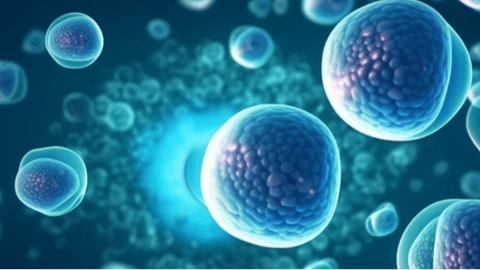
快速通道孤儿药
分析
对领域进行一次全面的分析。
登录
或

生物医药百科问答
全新生物医药AI Agent 覆盖科研全链路,让突破性发现快人一步
立即开始免费试用!
智慧芽新药情报库是智慧芽专为生命科学人士构建的基于AI的创新药情报平台,助您全方位提升您的研发与决策效率。
立即开始数据试用!
智慧芽新药库数据也通过智慧芽数据服务平台,以API或者数据包形式对外开放,助您更加充分利用智慧芽新药情报信息。
生物序列数据库
生物药研发创新
免费使用
化学结构数据库
小分子化药研发创新
免费使用
